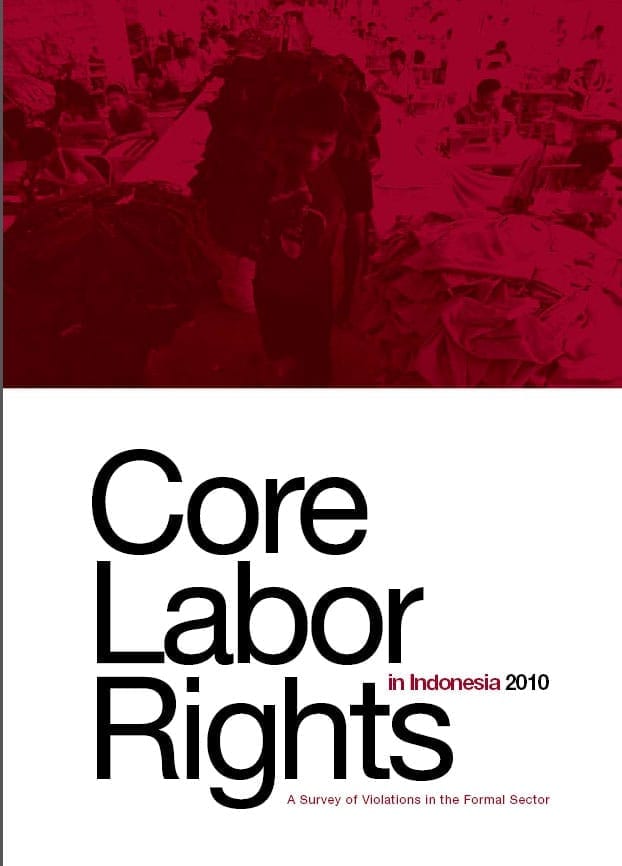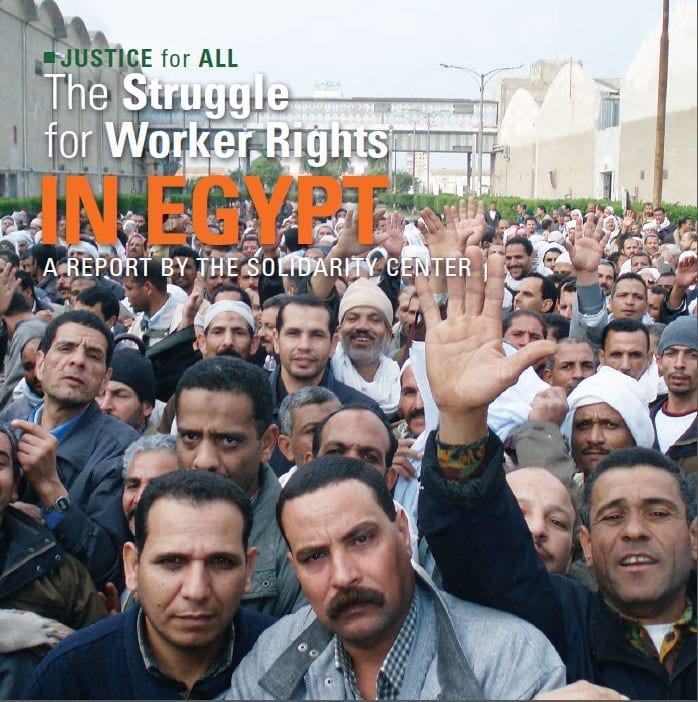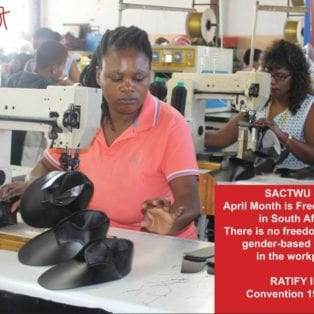As garment factories in Haiti begin reopening after shuttering for up to four weeks to prevent spread of the novel coronavirus, workers risk exposure during their crowded work commutes and at factories, while most have not received the wages they were promised during...

The Solidarity Center assists workers in the informal economy, such as market vendors in Zimbabwe, come together to assert their rights and raise living standards. Credit: ZCIEA
Some 2 billion people work in the informal sector as domestic workers, taxi drivers, and street vendors, many of them women workers. Informal economy work now comprises the majority of jobs in many countries and is increasing worldwide. Although informal economy workers can create up to half of a country’s gross national product, most have no access to health care, sick leave or support when they lose their jobs, and they have little power to advocate for living wages and safe and secure work.
The Solidarity Center is part of a broad-based movement in dozens of countries to help workers in the informal economy come together to assert their rights and raise living standards. For instance, three affiliates of the Central Organization of Trade Unions-Kenya (COTU-K), a Solidarity Center partner, signed agreements with informal worker associations to unionize the workers, enabling them to access to the country’s legal protections for formal-sector employees.
Find out more about informal workers gaining power by joining together in unions and worker associations in this Solidarity Center-supported publication, Informal Workers and Collective Action: A Global Perspective.
Women & Their Unions Stand Strong during COVID-19
In Tunisia, 150 women garment workers self-quarantined in their factory to manufacture desperately needed protective masks, churning out 50,000 a day as the COVID-19 crisis broke out. The South African Clothing and Textile Workers’ Union (SACTWU) reached an agreement...
Thai Union Organizer Connects COVID-19 and Worker Rights
อ่านบทความเป็นภาษาไทย In Thailand, where automotive assembly plants have temporarily shut down due to COVID-19, the closures have reverberated throughout the country’s supply chain, with many small- and medium-sized businesses laying off workers or freezing or cutting...

Solidarity Center 2011 Annual Report
Download here.

Solidarity Center 2010 Annual Report
Download here.

Core Labor Rights in Indonesia: A Survey of Violations in the Formal Sector (2010)
This survey of labor rights in Indonesia finds that although improvements have been made since the fall of the Suharto government, serious violations persist, including: discrimination against women in the workplace; anti-union discrimination by employers;...

Degradation of Work: Oil and Casualization of Labor in the Niger Delta (2010)
This report explores how the degradation of work in the oil-rich Niger Delta jeopardizes the livelihoods and well-being of workers and their families and results in fewer opportunities for Nigerians to improve working and living conditions, especially in local...

The Struggle for Worker Rights in Egypt (2010)
The situation for workers in Egypt in 2010 sadly bears all too much similarity to that conflict between Egyptian workers and their government so many centuries ago. Today’s Egyptian government maintains an iron grip on power, harshly punishes dissent and plays a...

Out of Sight, Out of Mind (2009)
This 2009 Solidarity Center study focuses on migrant men who have worked on Thai fishing boats out of the port of Mahachai in Samut Sakhon province, examining recruitment practices, working conditions and payment practices to assess the patterns and prevalence of...



